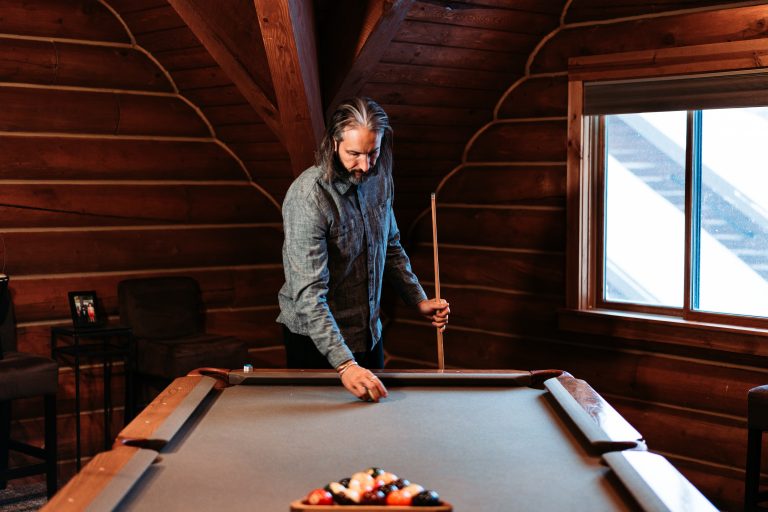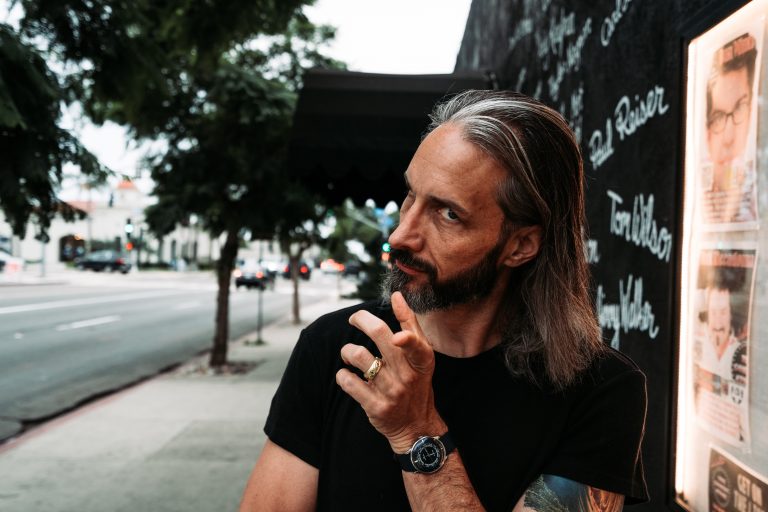One of the most common questions I get is, “Where should I invest”?
My answer is that it depends. What do you want? Who do you know? What do you know? What are your options?
Discernment is the muscle to build to make this decision. But this can hard in today’s hyped-up investing world.
We live in a time when sales copy is polished, social media sells a false life, and comparison culture whispers that everyone else is doing better, are further ahead, and have the best life. That mix alone can push us into taking risks that aren’t aligned with our vision, just to “catch up.”
Discernment is what separates poverty or prosperity, risk or reward, or regret or riches. It shows up in the choices we make:
- Who we do business with
- The model we choose for business
- How we structure our day
- What we say no to
- The groups we join
- The way we invest our time to learn
- The boundaries we create
Each choice either supports or sabotages our wealth.
When Past Wounds Cloud the Present
Part of what makes discernment tricky is the stories we bring from the past. Sometimes we learn the wrong lesson from a painful experience.
For me, one of my blind spots for decades was the fear of abandonment. Maybe it started at birth—I was pulled from my mother’s arms for days due to having jaundice, the umbilical cord wrapping around my neck and even the forceps hitting me in the face and bloodying my lip- tough start.
Whatever the cause, I grew up wanting to be liked, to be seen as someone who always did the right thing, because then no one would leave me.
Doing what’s right is good. But letting others do wrong while you keep trying to make it work? That’s a formula for one-sided, even abusive, relationships.
I stayed in business relationships too long. I kept team members who weren’t a fit because I didn’t want to hurt feelings. I put up with friends that were takers.
That’s not discernment—that’s fear. And it’s expensive.
There’s a cost to staying silent. A weight that builds over time. It shows up as bitterness, resentment, even scarcity.
You don’t have to be mean. You don’t have to fight. But you do have to speak up.
As my friend Roberto Monaco says, “Kill the monster while it’s small.”
That means having the conversation early, before resentment builds. Because waiting only makes it bigger. Harder. More painful.
When you sweep things under the rug, you don’t just hide them—you feed them. They go underground and sabotage your confidence, clarity, and peace of mind.
Discernment isn’t just about knowing what you want. It’s about protecting that vision by being willing to confront what threatens it.
Have you kept your accountant for too long? Do you have a financial advisor who hasn’t grown with you? Are your insurance people reactive and order takers? Are you worried because they use your services too or are friends?
This has a substantial cost, both to the pocketbook and the mind.
Discernment Is Boundaries
Discernment is about boundaries. Knowing your value. Standing for it. And protecting it when necessary.
That might mean finally letting go of a financial advisor who isn’t serving you.
It might mean addressing the friend who only takes and never gives.
It might mean saying no to an opportunity that sounds good but pulls you away from your ultimate win.
Discernment isn’t about rejecting everything—it’s about asking:
- Is this aligned with my Investor DNA?
- Is it worth my time and money?
- Is this someone else’s plan—or mine?
Sometimes the most generous thing you can do is give a positive no—clear, kind, and firm. It protects your time, your sanity, and your energy.
Because here’s the truth: If you aren’t clear on your win, someone else will sell you theirs.
Clarity Creates Discernment
It’s nearly impossible to be discerning without clarity.
Clarity comes from asking bigger questions:
- What do I really want?
- What’s my win?
- What’s my plan?
- How do I know if an opportunity is aligned—or just a distraction?
Clarity isn’t something you stumble into. It’s something you design with intention.
That’s why I emphasize having:
- A mentor who asks the questions you don’t know how to ask.
- A coach who gives step-by-step direction.
- Systems and tools to stay on track and course correct.
- Accountability to your own vision and values.
Without these, you’re vulnerable. The wrong people and the wrong opportunities look appealing when you’re unclear.
But when you know your win and have a framework, you see distractions for what they are—expensive detours.
The Cost of Saying Yes
Sometimes it’s hard to say no. You want to support someone. You don’t want to hurt feelings. You don’t want to miss out.
But what’s the cost of every yes?
Every yes costs time. Every yes costs energy. Every yes costs money.
And when that yes isn’t aligned with your Investor DNA, it doesn’t just cost you resources—it steals from your vision.
Discernment is the art of protecting your yes. Making sure that when you give it, it’s powerful, intentional, and in alignment with your win.
Discernment in Money
Now let’s talk about money, because this is where a lack of discernment can be most destructive.
Without discernment, people get sold products that sound good but don’t fit their path. They chase “hot” investments. They gamble. They speculate.
Discernment with money means:
- Focusing on financial independence first—assets that cover your expenses.
- Saying no to speculation and gambling.
- Building certainty with cash flow.
- Protecting the downside and transferring risk.
- Plugging financial leaks before chasing shiny investments.
- Investing in yourself first—because you are your greatest asset.
This is the opposite of the scarcity mindset that says, “Take what you can, hold on tight, and hope it works out.”
Discernment is abundance in action. It’s the confidence to say no to what doesn’t fit so you can say yes to what does.
Less Gambling, More Certainty
One of the greatest acts of discernment is shifting from gambling and speculation to cash flow and certainty.
You don’t have to roll the dice to build wealth.
You don’t have to sacrifice today for a someday that may never come.
You don’t have to say yes to every pitch.
Instead:
- Have your expenses covered by your assets.
- Grow your assets with your income.
- Automate your savings.
- Protect your downside.
- Invest in alignment with your Investor DNA.
That’s how you create certainty. That’s how you stay on course.
Discernment Rewards
Discernment isn’t always easy. It requires saying no. It requires confrontation. It requires letting go of relationships, investments, and habits that no longer serve you.
But discernment rewards you in three ways:
- Wealth: You keep more of what you make and invest in alignment.
- Peace of Mind: You eliminate the stress of uncertainty and speculation.
- Quality of Life: You live a life by design, not by default.
Discernment isn’t just about money. It’s about life. It’s about being clear on your win, staying true to it, and protecting it from distraction, manipulation, and fear.
Know your course. Stay your course.
Discernment will reward you with more than money—it will give you peace of mind.



